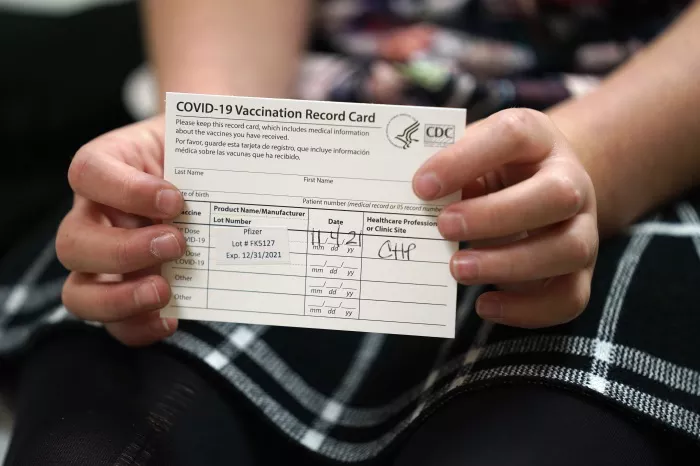Medical records serve as the backbone of the healthcare industry, playing a pivotal role in patient care, treatment planning, and overall healthcare management. In this comprehensive article, we will delve into the multifaceted importance of medical records, exploring their significance for healthcare professionals, patients, and the broader healthcare system. From ensuring accurate diagnosis to facilitating seamless communication among healthcare providers, medical records are indispensable in modern healthcare.
Medical Records
Definition and Scope
Medical records, often referred to as health records or patient records, encompass a comprehensive compilation of an individual’s health information. This information includes a patient’s medical history, diagnoses, treatments, medications, and any relevant communications between healthcare providers. The scope of medical records extends beyond hospitals to encompass various healthcare settings, such as clinics, private practices, and specialized treatment centers.
Evolution of Medical Recordkeeping
The concept of medical recordkeeping has evolved significantly over the years. Traditionally paper-based, medical records have transitioned to electronic health records (EHRs) in contemporary healthcare systems. This transition has streamlined information accessibility, improved data accuracy, and facilitated the integration of advanced technologies for enhanced patient care.
Ensuring Patient-Centric Care
Facilitating Continuity of Care
One of the primary purposes of medical records is to ensure continuity of care for patients. Healthcare providers can access a patient’s complete medical history, enabling them to make informed decisions about diagnoses and treatment plans. This seamless flow of information among different healthcare professionals is vital for providing consistent and effective care.
Enhancing Treatment Planning
Medical records serve as a roadmap for healthcare professionals in devising personalized treatment plans. By analyzing a patient’s medical history, physicians can identify patterns, monitor progress, and adjust treatment strategies accordingly. This personalized approach is crucial for achieving optimal health outcomes and minimizing the risk of adverse events.
Accuracy and Precision in Diagnosis
Diagnostic Aid
Accurate and timely diagnosis is a cornerstone of effective healthcare. Medical records play a pivotal role in the diagnostic process by providing a comprehensive overview of a patient’s health. From previous medical conditions to diagnostic test results, this information assists healthcare professionals in making informed and precise diagnoses.
Preventing Diagnostic Errors
Medical records act as a safeguard against diagnostic errors, which can have severe consequences for patient outcomes. By referring to a patient’s comprehensive medical history, healthcare providers can avoid misinterpretations, identify potential risk factors, and ensure that diagnostic decisions are based on a thorough understanding of the individual’s health profile.
Legal and Ethical Considerations
Documentation for Legal Compliance
Accurate and detailed medical records are essential for legal compliance within the healthcare industry. They serve as evidence of the care provided, supporting the healthcare provider in case of legal challenges. Proper documentation is crucial for demonstrating adherence to ethical standards, protocols, and regulations governing healthcare practices.
Patient Privacy and Confidentiality
Maintaining patient privacy and confidentiality is a paramount ethical consideration in healthcare. Medical records are subject to strict privacy regulations, such as the Health Insurance Portability and Accountability Act (HIPAA) in the United States. Adhering to these regulations ensures that patient information remains confidential, fostering trust between patients and healthcare providers.
Interoperability and Information Exchange
Interoperability Challenges
While electronic health records have significantly improved information accessibility, challenges related to interoperability persist. Interoperability refers to the seamless exchange of health information between different healthcare systems and providers. Incomplete interoperability can hinder the effectiveness of medical records in facilitating comprehensive patient care.
Importance of Standardization
Standardizing medical record formats and protocols is crucial for achieving interoperability. The adoption of standardized coding systems and data exchange formats enables different healthcare systems to communicate seamlessly, ensuring that vital patient information is accessible to authorized healthcare providers regardless of the system they use.
Supporting Research and Public Health Initiatives
Data for Medical Research
Medical records contribute valuable data to medical research, playing a pivotal role in advancing scientific knowledge and improving healthcare practices. Researchers can analyze anonymized and aggregated health information from medical records to identify trends, risk factors, and treatment outcomes, ultimately contributing to the development of evidence-based medical interventions.
Surveillance and Disease Prevention
Medical records also play a vital role in public health initiatives by supporting disease surveillance and prevention efforts. Aggregated data from medical records can help identify disease outbreaks, track the prevalence of chronic conditions, and inform public health strategies. This information is invaluable for policymakers and healthcare authorities in developing targeted interventions to improve population health.
Technological Advances and Future Trends
Artificial Intelligence in Medical Record Analysis
The integration of artificial intelligence (AI) in medical record analysis is a burgeoning trend with the potential to revolutionize healthcare. AI algorithms can analyze vast datasets within medical records, identifying patterns, predicting disease outcomes, and assisting healthcare professionals in making more accurate diagnoses and treatment decisions.
Blockchain Technology for Data Security
Blockchain technology is emerging as a potential solution to enhance the security and integrity of medical records. By utilizing decentralized and cryptographic methods, blockchain can ensure that patient information remains secure, tamper-resistant, and accessible only to authorized parties. This technology has the potential to address concerns related to data breaches and unauthorized access to medical records.
In conclusion, the importance of medical records in the healthcare ecosystem cannot be overstated. From ensuring patient-centric care and accurate diagnoses to supporting legal compliance and research initiatives, medical records serve as a linchpin in the delivery of quality healthcare. As technological advances continue to shape the landscape of healthcare, the ongoing evolution of medical recordkeeping will play a crucial role in enhancing patient outcomes and advancing the field of medicine. Embracing these changes while maintaining a steadfast commitment to privacy, security, and ethical standards will be essential in harnessing the full potential of medical records for the benefit of patients and the healthcare system as a whole.

































